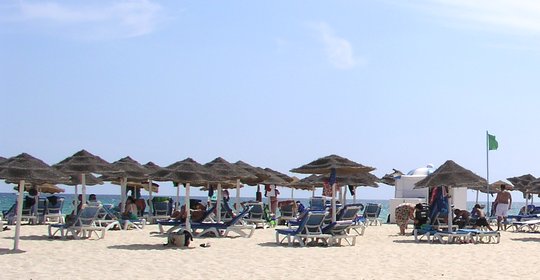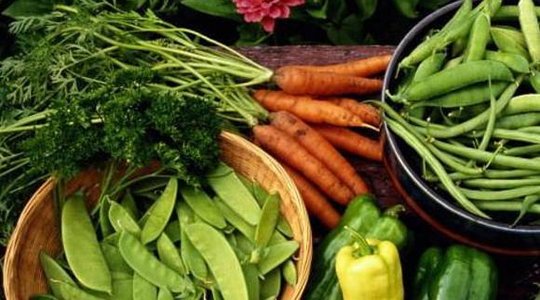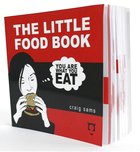I spent the last 2 weeks on a beach resort in beautiful Tunisia, doing pretty much nothing, just like I had planned.

Tunisia is a perfect place to relax, as long as you stay away from the Medinas where people will try anything to get you into their store to buy their overpriced junk. Souvenir shopping in Tunisia involves lots of bargaining so don’t be afraid to counter their offer with like a 10th of their original “special price for you my friend” offer. (Some shops have fixed prices, which is a good indication of what the “right price” would be).
Most days involved breakfast, a game of tennis, beach, lunch, more beach, dinner, entertainment. Lather, rinse, repeat.
Suffice to say I got plenty of rest and time to read some books. One particular little book I would like to share about is The Little Food Book: You Are What You Eat by Craig Sams.
Here’s a short description of what this book is about:
30,000 Americans a year die of obesity, more than the total annual toll of motor accidents, firearms, drugs and alcohol combined. The World Health Organization estimates there are 500,000 pesticide-related poisonings a year. Who controls what we eat? What happens to it before it gets to us? The Little Food Book will help you understand how by tackling the issues that affect the way we eat. Craig Sams writes with authority in this collection of mini-essays, explaining the mechanics of food production and related subjects such as organics, nutrition, hormones, pesticides and GMOs.
Do you ever really think about the food you buy in the supermarket? Where it comes from, how it was made, what’s in it?
When you get fresh vegetables and cook up a healthy veggie dish, do you know how much pesticide residue you’re eating? How about the antibiotics and hormones used to keep sick animals from dying so they can become profitable enough to be slaughtered to end up on your plate?
It seems this is one of those “people don’t know about this” issues… Then again: Obesity (not just from eating fast food, but chemical and hormone induced imbalance of our bodies), cancers, animal diseases like BSE, foot and mouth disease and avian flu. When you think about it, you just know that there is a problem with our food.
We’re messing with the food, in a way it isn’t meant to be messed with.
Just to name a few concerns:
- Food additives: E numbers, artificial flavors (even when they call it natural flavor it’s chemical), etc. How safe are they really?
- Intensive farming: destruction of soil for short term profit, unhealthy for both environment and consumer.
- Genetic modification: do we even know what we’re doing here?
Unfortunately, food is big business, and when there’s money involved things tend to get messy. Organizations like the FDA are supposed to look out for consumer health interests, but it is politically outgunned because corporate campaign contributions and powerful lobbyists speak louder voice than even clearly documented science.
So what can we do?
Well, I’m trying to buy fresh or processed Organic foods (also called biological food in Europe).

I’m already seeing a steady increase of organic foods in my local supermarket, and I’m happy to buy it to voice my opinion (you know how loyalty cards work right?), even though it’s more expensive for most products (up to 50% even).
In my opinion governments should subsidize organic food (instead of subsidizing burgers, a burger without subsidies would cost about 3 times the price you pay now…). Healthy people benefit a country immensely, if only for the gigantic reduction in health costs.
Anyway, don’t take my word for it. Investigate! Check the labels on your food and look up what’s in it. It’s important to know vegetable fat is not the same as vegetable oil, and a bio chicken is not just a chicken with more space to run around.
 Save big with Plugin Boutique's Drums, Percussion & Rhythm Month Sale!
Save big with Plugin Boutique's Drums, Percussion & Rhythm Month Sale!

